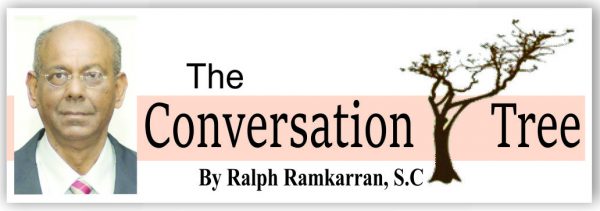
Published at the same time was the President’s letter of the same date to Opposition Leader Bharrat Jagdeo. President Granger expressed the wish to consult with Mr. Jagdeo on the constitutional role of the National Assembly in the present situation and the Commission’s readiness and requirement for funding to conduct the elections. The letter ended with the President informing Mr. Jagdeo that he had written to the Chairman of the Commission urging him to initiate arrangements for the conduct of the elections.
Although the context of President Granger’s letter admitted the possibility of discussing a date for elections, which a reply by Mr. Jagdeo could have indicated and he could have later pursued at the meeting, he instead announced that he would decline the President’s invitation unless a date for elections was announced. Later, he demanded that a date be placed on the agenda for the meeting.
Mr. Jagdeo, no doubt, recalled the last time he met with President Granger after the current crisis had emerged when the no-confidence vote was passed in the National Assembly. He had requested the meeting with President Granger, was required to state what he wanted to discuss and, after the discussions, was sent on a wild goose chase to the Elections Commission to investigate its readiness to hold elections. No doubt, in the absence of an agenda item of a date for elections, Mr. Jagdeo feared that the meeting would achieve nothing and its optics would be used by the Government to convince the people of Guyana and the international community that progress was being made to resolve the impending constitutional crisis.
Then a second letter of the same date, written to the Commission by the President, appeared. In this letter, the President acknowledged the first letter and, purporting to respond to a letter written to him by the Chairman of the Commission, noted that the Commission would require a new appropriation of funds for the conduct of the elections and requested consultation with the Commission on its readiness for the conduct of the elections.
The second letter was not in conflict with the first. It merely requested consultation with the Commission, which the first letter did not mention. The President, not having resiled from his urging of the Commission to prepare for elections or his commitment that the Government will ensure that funds are provided and that the Commission would have adequate time, it has to be assumed that the contents of that first letter remained binding. Minister of the Presidency, Joe Harmon, in response to Mr. Jagdeo’s allegations of fraudulent behaviour on the part of the President, castigated Mr. Jagdeo for his accusation and denied that the second letter was a withdrawal of the first.
But the discussions at the Elections Commission, reported in the press on March 1st, that Government-nominated members are insisting on house to house registration as a pre-requisite for “credible” elections, suggests that, if that is also the Government’s position, nothing is resolved, or will be resolved, whether or not a meeting is held.
The insistence of the Opposition-nominated members of the Commission certainly promote what is believed by many to be the intent of the Government to postpone elections for as long as possible. House-to-house registration will take more than a year. For as long as there is insistence on a house-to-house registration of voters, there will be no resolution of the crisis. A meeting between the President and Opposition Leader would not succeed.
Having said the above, I have always believed that doors should never be closed in politics. The second letter, not having expressly contradicted the first, Mr. Jagdeo should have assumed that its contents remain valid and, at the meeting, request an explanation from the President as to why the Government-nominated members of the Commission are ignoring his request.
Mr. Jagdeo could have informed the public of his intention and then raise the issue of a date for elections at the meeting. If his effort was unsuccessful, he could then declare the meeting a failure. No politician should paint his opponents in a corner. The door should always be left open for them to walk out in compromise and dignity. The struggle to persuade the Government to observe constitutional provisions has some way to go. For the Opposition, success depends on persuading the international community. It can only do so if it appears reasonable, no matter how unreasonably the Government may behave. The Opposition can only succeed with patience and cool tempers.
This column is reproduced, with
permission, from Ralph Ramkarran’s blog,




